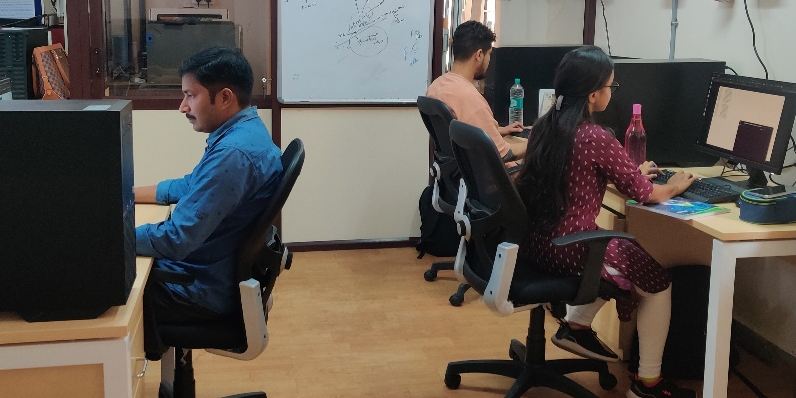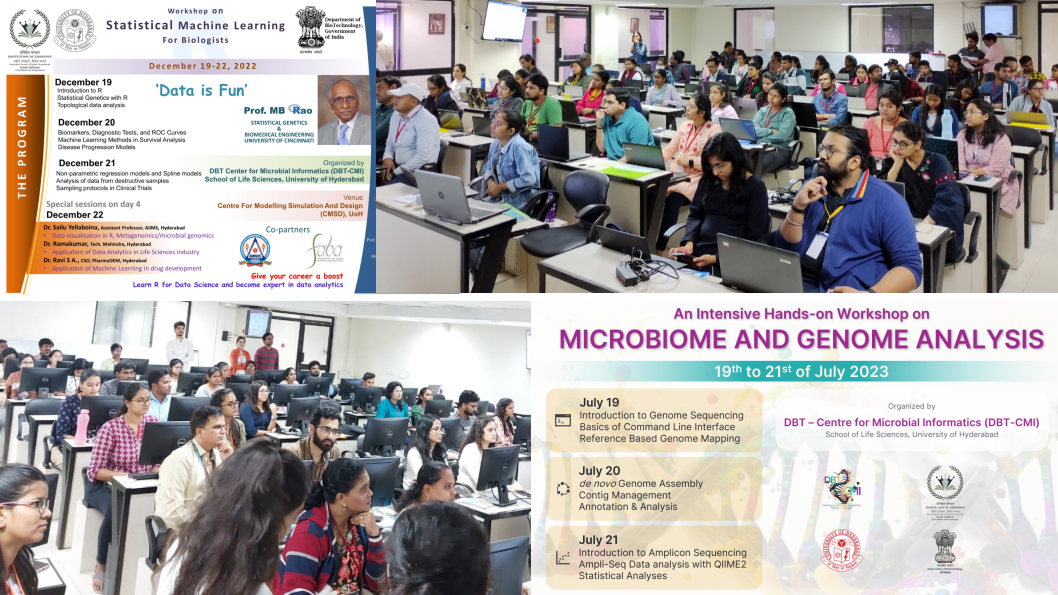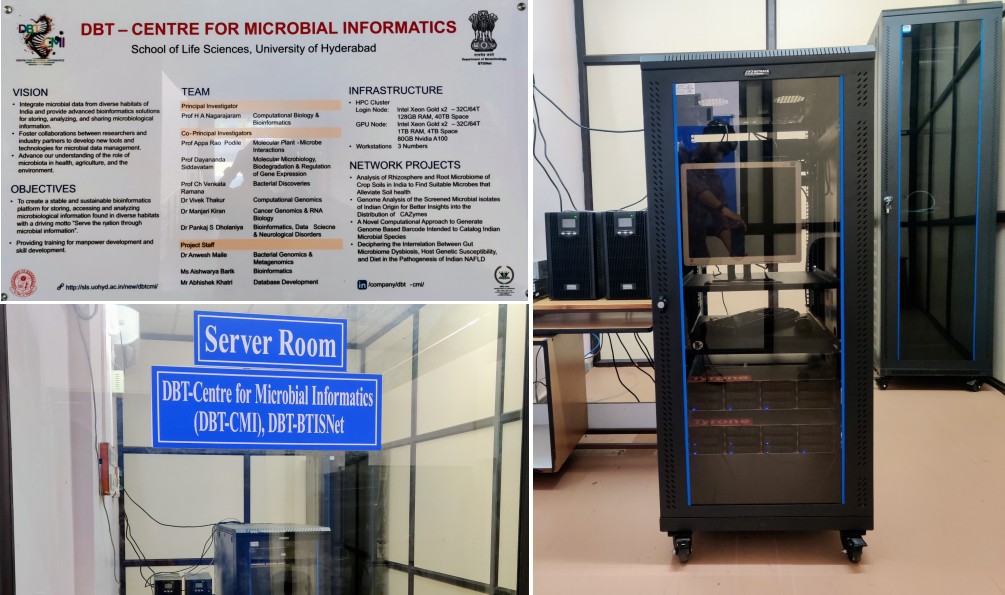University of Hyderabad
Biotechnological Advancements through Microbial Informatics: Pioneering Research in computational Bioinformatics for Comprehensive Insights into Microbial Ecosystems
The Center for Microbial Informatics at University of Hyderabad is dedicated to establishing a comprehensive ‘one-stop portal’ for India's specialized microbial informatics. The center focuses on microbial genome and microbiome analysis, filling essential knowledge gaps, and offering specialized analytical services. The paramount objective is to foster national progress through profound insights into microbial ecosystems while nurturing skill development in this field.
The center aims to showcase the biotechnological potential of microbes and construct a robust and enduring bioinformatics platform. The platform will ensure the seamless storage, accessibility, and analysis of diverse microbiological information found in varied habitats such as human gut microbiota, soil, rhizosphere, lakes, river beds, marine, industrial effluent sites, etc across India. The information includes genome, metagenome, phenotypic, geographical distribution, taxonomic classification, etc. With the driving motto of “Serve the nation through microbial information”, the center strives to contribute to a deeper understanding of microbial capabilities in biotechnology.


This endeavor includes the curation of databases housing genomic and metagenomic sequences of indigenous microbiomes collected from public repositories including published literature. The center also collaborates with the Anthropological Survey of India, the Manipal Academy of Higher Education, and the National Institute of Veterinary Epidemiology and Disease Informatics to establish and analyze the intricate landscape of human gut microbiota.
The center facilitated the development of human resources through specialized workshops, such as a Statistical Machine Learning Workshop with 79 participants and a Microbiome and Genome Analysis Workshop with 40 participants. Additionally, providing training to interns and PhD scholars in the field of metagenomics.
The center is equipped with high-end server nodes to perform various microbiomes and genome analyses. Ongoing development includes the creation of databases and streamlined pipelines aimed at simplifying the utilization of bioinformatics tools.
The center along with the NNP partners aims to explore critical areas such as rhizosphere microbes that alleviate soil health, understand the distribution of Carbohydrate-Active Enzymes (CAZymes), employ genome-based barcoding techniques for cataloging diverse microbes, and explore the association between gut microbiota, host susceptibility, and dietary habits in Non-Alcoholic Fatty Liver Disease (NAFLD) pathogenesis.

